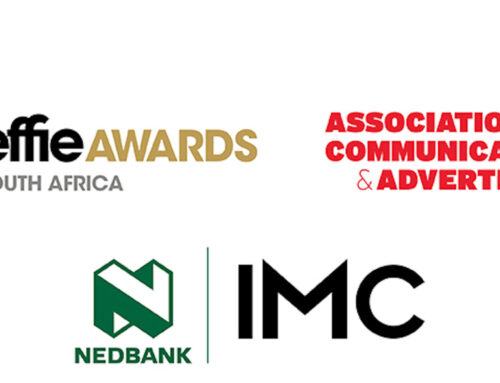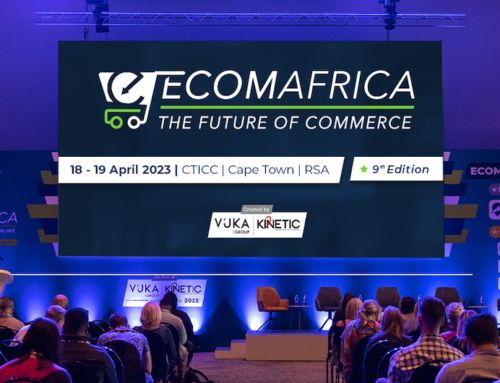According to Madri van der Westhuizen, Campaign and Social Media Manager at ANEW Hotels & Resorts, many marketers are using AI-generated content to reach potential consumers. As a result, the uniqueness and originality of messaging have diminished.
Most content is becoming the same, filled with the similar keywords and lacking substance, making it harder for brands to stand out and connect authentically with their audience. There is absolutely no denying that AI-generating content software has become a great tool assisting in finding the right words for replying to an awkward email, generating new content angles and igniting creative ideas.
AI-generated content can however be spotted a mile away, and as a result is profoundly impacting in-bound marketing and the process of creating a series of informative content pieces, from press releases, social media posts and newsletters, that guide consumers through their customer journey with your brand.
If you consider that South Africa has the highest internet usage rates in the world with an average of 9 hours spent online per day and that 26 million people are active on social media, being online, connecting with your consumer with engaging content, is the driving force behind almost all marketing strategies.
Even though in-bound marketing adds value and establishes your organisation as a credible market leader, oversaturation has become a major issue due to the rise of AI.
So, How Did We Get Here?
In South Africa, marketing roles are commonly merged with the assumption that one person can handle all the various marketing-related tasks. These single individuals are known as the ‘marketing unicorn’ responsible for running an entire department, handling design, content creation, PR, community management and marketing. These ‘unicorns’ are often exposed to a lack of understanding from clients and business leaders as to the effort required to produce daily quality content that draws attention. Overworked ‘unicorns’ may lean too heavily on AI content-generating tools to effectively make their lives easier resulting in answering to the industry’s demand for quantity rather than quality.
Social media demands being ‘always on’ with a relentless stream of content creation and generation. This can be overwhelming and as the pressure mounts to produce more, as content creators, we often find ourselves sacrificing the essential elements of content marketing, specifically, the balance between quality versus quantity.
AI often generates generic content, filled with cliché phrases. Some brands believe no human input is needed, as AI can do it far cheaper, but this leads to inaccuracies, producing bland content filled with the same keywords and phrases as direct competitors.
Due to the fast-paced marketing environment the focus shifts towards constantly creating content to meet the demands of platforms that operate 24/7. This can lead to severe burnout, as creators are continually required to think ahead, adapt, and generate fresh ideas on the fly. The creative process becomes a race against time, leaving little to no room for reflection, refinement, or genuine inspiration. This relentless pace can dilute the effectiveness of your brand’s messaging, making it challenging to deliver meaningful, high-quality content that resonates with audiences.
Is There Really A Problem?
As AI becomes a more generalised tool the average person can easily recognise AI-generated content. Anyone who spends a decent amount of time reading up on the industry on key trade websites have now become AI content warriors, recognising certain tell-tale signs of these platforms. This recognition stems from distinct characteristics that often sets AI outputs apart from human-created work.
AI generated content may lack the subtlety of human emotion, leading to a more mechanical and monotonous tone. It can also display repetitive patterns or overly simplistic structures, like loads of emojis in the content, which makes it feel formulaic. AI struggles with nuanced cultural references, which can result in inauthentic content. As audiences become more discerning, they develop a sharper ability to detect these tell-tale AI signs, leading to a growing preference for genuine human expression over synthetic generation, and more and more people, and brands, being called out for using these tools.
Consumers crave authenticity and genuine connections with brands. They want to feel understood, valued and appreciated beyond mere transactional relationships. While AI can facilitate personalised interactions, it cannot replicate the authenticity and empathy that come from genuine human interaction.
Five years ago, fake news was rampant, and now, AI is often called out for its lack of authenticity, making people and brands appear lazy. So, my question is, is that the association you want for your brand? Do you want authentic or generic? Both are viable options, but only one will thrive.
How Do We Remedy This?
We have a short amount of time each day to make a real impact and resonate with our target audience. Getting ahead of the algorithm can only be done with more organic visibility.
When you look at the stats and algorithms of a social channel, the more you engage with a post, the more valuable customers find it. But if it is too generic, people will simply scroll past. Algorithms, also give much less value to this type of generic content. The more interested people are in your content, the more it will stand out. And AI content-generating tools are helpful and useful to create content like this, but only if used correctly. These tools should rather be used as helpful assistants, much like a calculator, rather than taking over the entire thinking process.
Many purists are questioning the value of AI, and how can you calculate your return on investment (ROI) if all content from competing industry brands sounds the same? Where can we truly make an impact, and what strategies should guide us? The pressure to meet unrealistic performance expectations is rising, often fuelled by an over-reliance on these tools.
Here are some takeaways to ensure that content remains authentic and compelling while making use of AI content-generating tools. Firstly, brainstorm innovative ideas and authentic thoughts and then use AI to build on this idea no matter how small, silly or random. It is almost like having an extra team member to reflect your thoughts on. Also, always see what pops out of the AI-generating tool, and what direction it takes. It might spark another idea.
Secondly, cross-check the facts. AI has been built for speed, not necessarily for accuracy. Remember, some platforms last scanned the internet two years ago. Don’t just believe your content to be true without checking it. Consumers love fault-finding in content. If there is no consistent fact-checking, even in the way it spells your brand name and how it speaks to your consumers, and you miss it, it could wreak havoc on your brand. Be critical about spelling. Most AI-generated tools opt for American English which is in contrast to the British style used in South Africa. So, use the memory section of your AI tool effectively. Your brand has a unique voice with certain words and rules you use, or omit. Guide the system to be authentic to your needs in order to be more accurate.
Finally, always ask: what is your customer taking away from this piece of content? And if you can answer this, you are in the clear.
It’s crucial to use AI selectively. AI content-generating platforms are extremely helpful tools for structuring thoughts, but the problem comes with over-reliance, which diminishes critical thinking and distorts perception. If we solely bank on using these tools, we risk losing sight of what truly matters in content marketing. And, as with everything in life, we need to know how to effectively use it.
AI content generating tools should enhance our work and not replace the creativity and insight we bring to the table. Human intervention, critical thinking and fact-checking remain essential. The warmth of South African hospitality is one of our greatest assets, so, let’s ensure it remains central to our marketing efforts.
ANEW HOTELS & RESORTS
https://anewhotels.com/






